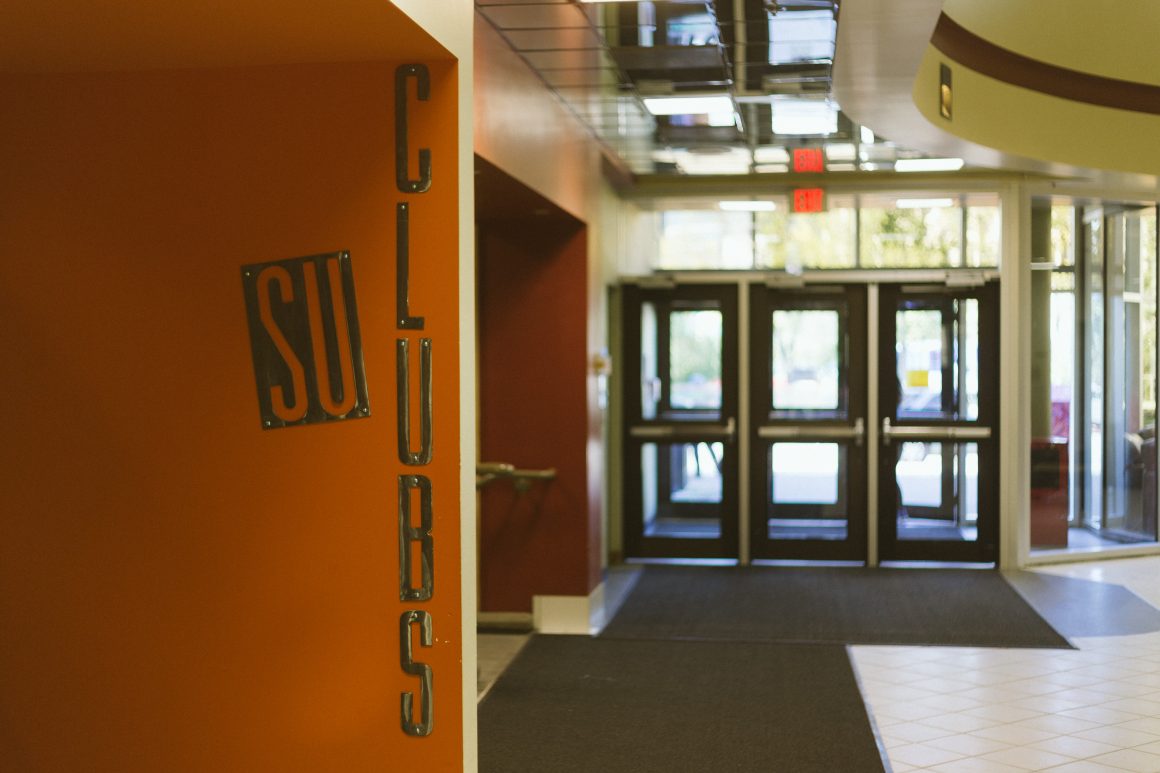
Campus club aims to help Calgary-area refugees and newcomers
By Hannah Brunn, March 27 2018 —
Pangaea, a University of Calgary student club that focuses on helping newcomers to Calgary navigate life in the city, hosted its annual training event on March 7 where volunteers came together to learn about cross-cultural sensitivity, bilateral learning, Syrian culture and mental health. The event aimed to equip Pangaea’s volunteers with the tools they need to support Syrian refugee families who are now living in and around Calgary.
Pangaea states its mission is to “facilitate a safe and caring environment to build international friendships and cultural understanding.” The club’s profile says one of the ways they work to foster cultural understanding is through mentorship programs between refugees or newly landed immigrants and resident Calgarians.
Sarah McColman, co-president of Pangaea, said although there are other programs designed to do things like help families receive health care and enrol children into schools, Pangaea is unique in the fact that it goes beyond basic needs and focuses on giving refugees a sense of community and home.
“The idea is to make something lasting, to make it rooted in the community,” McColman said. “I think people are happiest when they feel like they are seeing people and being seen at the same time.”
Volunteers are matched with a refugee or immigrant family along with a mentor, who helps the volunteer with tasks like planning community events, tutoring children and building a support system for the family. Pangaea’s president and founder, Manisha Bharadia, emphasized the importance for volunteers to open themselves up to learn new things.
“It’s equally important that we learn about where they came from and their culture and lifestyle as well. This is part of Pangaea’s bilateral learning, where although one will be teaching families about Canadian life, volunteers are expected to learn about Syrian culture as well,” Bharadia said.
During the training event, volunteer Hannah Nesbitt, a volunteer, and Amy Chen, vice-president external and volunteer mentor, recounted their experiences with their assigned families. Nesbitt talked about how the family has been as welcoming as they are eager to learn English and about Canadian life while also teaching Nesbitt about their own culture and language.
“It’s cool to try and communicate with them. I am also learning a lot of different Arab words,” Nesbitt said.
During the training event, Nesbitt also told the group about how rewarding this volunteer experience has been, namely through seeing the improvement in the children’s schoolwork and building connections with the family.
Meanwhile, the club’s mental health ambassador Shannon Giorgini discussed ways to identify signs of depression, anxiety and post-traumatic stress disorder in family members with volunteers.
“We look at promoting well-being, early identification of signs and symptoms and creating an environment where we can support people with mental health issues,” Giorgini said.
Promoting wellness and healthy lifestyle was a recurring theme throughout the night with explanations of programs such as the Scavenger Hunt and Spread the Love, which allows families to engage with the Calgary community.
The second half of training was headed by Pangaea community facilitator Asalah Alareeki, who spoke about Syrian culture, taught some common Arabic words and discussed the importance of removing any biases or stereotypes one may hold. Alareeki based her talk on making volunteers knowledgeable about Syrian culture and comfortable with the interactions they will be a part of.
Alareeki also encouraged participants to educate themselves on the differences between various cultures. Alareeki said volunteers should learn about Islam before starting with a family.
“A lot of people might not know that Islam preaches care of mental illness, mental health, women’s rights and education,” Alareeki said.
McColman added that a rewarding part of the experience is the human connections made.
“At the end of the day, it’s not people helping people who need help, it’s humans knowing humans, and the beauty that comes from that,” McColman said.
To learn more about Pangaea and their programs, students can visit www.pangaeayyc.com or to their Facebook page Pangaea, Connecting Humanity.
